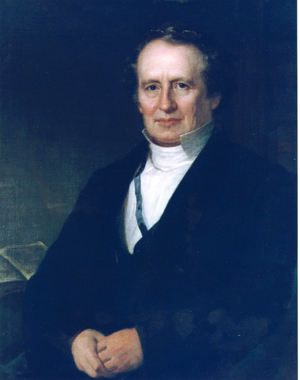 by Charles Hodge
by Charles Hodge
It is a New Life
5. While denying that regeneration is a change either in the essence or acts of the soul, evangelical Christians declare it to be, in the language of Scripture, “a quickening,” a ζωοποιει̂ν, a communication of a new principle of life. It is hard, perhaps impossible, to define what life is. Yet every man is familiar with its manifestations. He sees and knows the difference between death and life, between a dead and living plant or animal. And, therefore, when the Bible tells us that in regeneration God imparts a new form of life to the soul, the language is as intelligible as human language can be in relation to such a subject. We know that when a man is dead as to the body he neither sees, feels, nor acts. The objects adapted to impress the senses of the living make no impression upon him. They awaken no corresponding feeling, and they call forth no activity. The dead are insensible and powerless. When the Scriptures declare that men are spiritually dead they do not deny to them physical, intellectual, social, or moral life. They admit that the objects of sense, the truths of reason, our social relations and moral obligations, are more or less adequately apprehended; these do not fail to awaken feeling and to excite to action. But there is a higher class of objects than these, what the Bible calls “The things of God,” “The things of the Spirit,” “The things pertaining to salvation.” These things, although intellectually apprehended as presented to our cognitive faculties, are not spiritually discerned by the unrenewed man. A beautiful object in nature or art may be duly apprehended as an object of vision by an uncultivated man, who has no perception of its esthetic excellence, and no corresponding feeling of delight in its contemplation. So it is with the unrenewed man. He may have an intellectual knowledge of the facts and doctrines of the Bible, but no spiritual discernment of their excellence, and no delight in them. The same Christ, as portrayed in the Scriptures, is to one man without form or comeliness that we should desire Him; to another He is the chief among ten thousand and the one altogether lovely; “God manifest in the flesh,” whom it is impossible not to adore, love, and obey.
This new life, therefore, manifests itself in new views of God, of Christ, of sin, of holiness, of the world, of the gospel, and of the life to come; in short, of all those truths which God has revealed as necessary to salvation. This spiritual illumination is so important and so necessary and such an immediate effect of regeneration, that spiritual knowledge is not only represented in the Bible as the end of regeneration (Col. 3:10; 1 Tim. 2:4), but the whole of conversion (which is the effect of regeneration) is summed up in knowledge. Paul describes his conversion as consisting in Christ’s being revealed to Him (Gal. 1:16); and the Scriptures make all religion, and even eternal life, to be a form of knowledge. Paul renounced everything for the excellency of the knowledge of Christ (Philippians. 3:8), and our Lord says that the knowledge of Himself and of the Father is eternal life. (John 17:3). The whole process of salvation is described as a translation from the kingdom of darkness into the kingdom of light. There is no wonder, therefore, that the ancients called regeneration a φωτισμός, an illumination. If a man born blind were suddenly restored to sight, such a flood of knowledge and delight would How in upon him, through the organ of vision, that he might well think that all living consisted in seeing. So the New Testament writers represent the change consequent on regeneration, the opening the eyes on the certainty, glory, and excellence of divine things, and especially of the revelation of God in the person of his Son, as comprehending almost everything which pertains to spiritual life. Inseparably connected with this knowledge and included in it, is faith, in all the forms and exercises in which spiritual truths are its objects. Delight in the things thus revealed is the necessary consequence of spiritual illumination; and with delight come satisfaction and peace, elevation above the world, or spiritual mindedness, and such a sense of the importance of the things not seen and eternal, that all the energies of the renewed soul are (or, it is acknowledged, they should be) devoted to securing them for ourselves and others.
This is one of the forms in which the Bible sets forth the doctrine of regeneration. It is raising the soul dead in sin to spiritual life. And this spiritual life unfolds or manifests itself just as any other form of life, in all the exercises appropriate to its nature.
-----
From Systematic Theology, vol. 3, a short selection of chapter 15 on Regeneration by Charles Hodge
